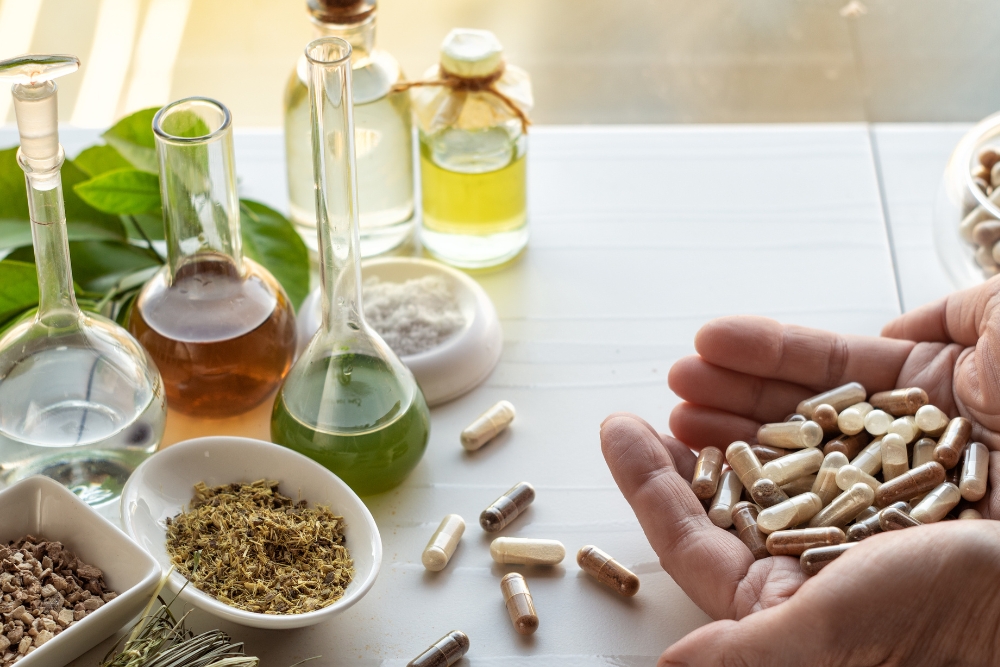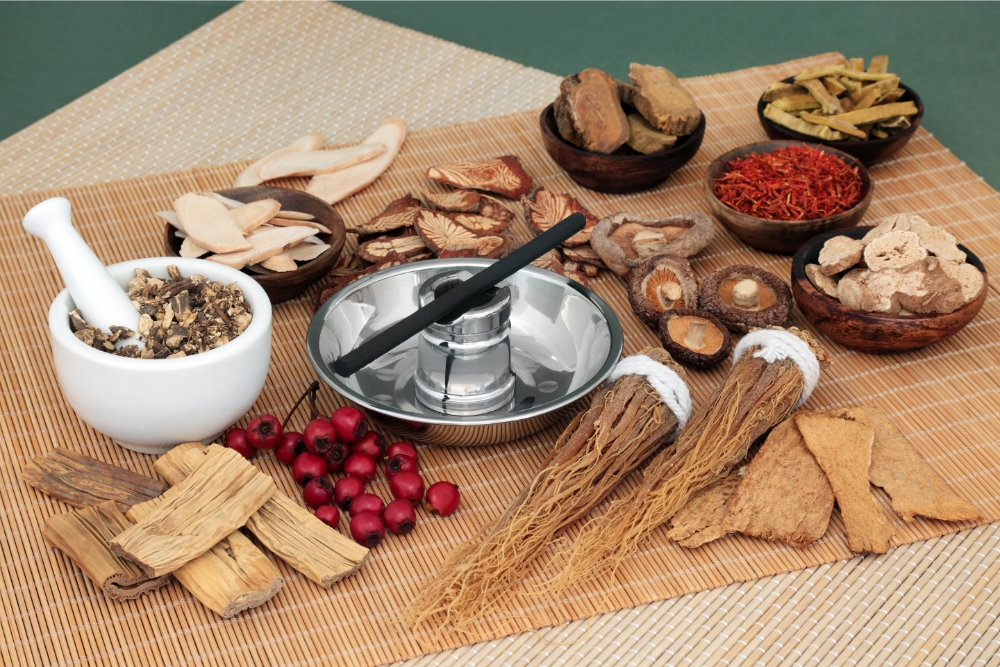Have you ever experienced a sore throat? Tender to touch and swallow? Probably, it is because you had swollen lymph nodes. There could be many reasons for the swelling of the lymph nodes, but the most common cause is infection from bacteria and viruses. But allergies can also be the major reason behind the swollen nodes in your throats. They happen when you are sensitive to or exposed to irritants like pollen or common allergens.
However, if you are going through swollen lymph nodes, there is no need to worry. Some medications and remedies can treat and diagnose this disease and give you an effective treatment plan.
In this article, we will discuss the most recommended ways to treat swollen lymph nodes.
What are the common allergy Symptoms of Swollen Lymph Nodes?

If you are allergic to irritants in the air, you may be familiar with some of the most common symptoms that may trigger swollen nodes. Some of the basic allergic symptoms that you may have experienced are:
- Watery eyes
- Stuffy or itchy nose
- Sneezing
- Or rashes on any part of your body.
These symptoms vary from person to person; some may experience only two or three of them, while others may experience all of them.
How Allergies Cause Sore Lymph Nodes?

Now, you may be wondering how allergies cause sore lymph nodes. Well, lymph nodes are the bean shapes located in various body parts, including the neck, armpits, and many others, and are linked with the lymph vessels.
The vessels transfer the fluid that contains white blood cells, protein, fat, and other substances to the nodes. Nodes then filter the germs and other harmful substances. When you feel a sore throat, your immune system is under attack and fighting bacteria and viruses.
Allergic reactions can also trigger lymph nodes because allergies can weaken the immune system. This makes the body more vulnerable to the attack of harmful bacteria and viruses.
Swollen lymph nodes can be very uncomfortable if treated unchecked.
Treatment of the Swollen Lymph Nodes from Allergies

If you are suffering from swollen lymph nodes, the best way to treat them is to find the underlying cause of the swelling of the lymph nodes. Taking an allergic medication could help in the treatment of lymph node inflammation.
Sometimes, the medications could not help the lymph nodes. In that case, you could see a doctor.
Taking Allergy Medications:
You can take fast-acting allergy medicines like antihistamines if allergies are behind your swollen lymph nodes. This medicine can help eliminate allergies like runny nose, coughing, sneezing, and rashes.
Treating the allergies causing lymph node inflammation will also reduce lymph node swelling.
Take Pain Relievers:
Sometimes, you may feel pain while swallowing your food and drinking the fluids. To get rid of the pain, the doctors recommend ibuprofen and acetaminophen.
These medicines can help reduce the pain and tenderness caused by the swelling of lymph nodes.
Over-the-Counter Medications:
You may have difficulty breathing, hearing, and speaking when you have swollen lymph nodes. Therefore, you cannot leave the swollen lymph nodes untreated.
Some doctors recommend OTC, also called over-the-counter medicines, like Allegra (fexofenadine). It is an adult, non-drowsy antihistamine used to lessen or treat swelling. Some of the other medications, like naproxen and acetaminophen, relieve the pain.
You May Like How To Cure Throat In 24 Hours You Need To Know
Natural Remedies That Will Work with Swollen Lymph Nodes

You can try various natural remedies to treat your swollen lymph nodes from allergies, because resolving seasonal allergies may just be a matter of finding the root cause.
However, consult the doctor if there is no improvement in your condition, even after one month. Some of the remedies that you can use are:
- Chili Pepper
For the treatment of swollen lymph nodes, spicy chili treats swollen lymph nodes as it helps dilate the blood vessels, which improves blood circulation. Due to the increased circulation, the body can move fluid more easily, which helps reduce swelling.
You can consume cayenne pepper by adding it to your daily meals. If you do not enjoy spicy food, this ingredient is always easy to consume as a beverage. You can add cayenne pepper, and honey to the warm water and drink it two to three times a day.
- Apple Cider Vinegar
It is one of the most popular home remedies to treat allergies. Apple cider vinegar has antimicrobial properties, and according to the research, it can be proven effective against infectious bacteria like methicillin-resistant, staphylococcus aureus, and Escherichia coli.
Apple cider vinegar is effective in fighting lymph node infections; however, some of the clinical studies don’t support this evidence.
You can add apple cider vinegar to your diet in two ways. One is to mix it in warm water with some honey, or you can also try it without honey. After preparing the mixture, soak a washcloth in these mixtures and hold it on the swollen area.
- Garlic
Garlic is very famous among natural and home remedies, and it is also one of the traditional treatment methods. Various studies have found garlic’s antibacterial, antithrombotic, and anti-diabetic properties.
These properties of garlic will undoubtedly help in reducing the swelling in the lymph nodes and are also effective in cleansing and healing the lymphatic system.
To treat the swollen nodes, have 2-3 garlic cloves every day or, with garlic oil, massage the swollen area.
- Castor Oil
Another easy remedy is the use of castor oil; it has some anti-inflammatory and pain-relieving properties. These properties come from the fatty acid called ricinoleic acid in castor oil.
Many people have been using a material soaked in castor oil to improve blood circulation and lessen swelling. If you also want to try this, all you need to do is apply a thin layer of castor oil on the swollen area and massage for 5-10 minutes. After 10 minutes, rinse the oil off the skin.
- Echinacea
These are the native plants that are native to some areas of the United States and are found in the Rocky Mountains. These are related to sunflowers and ragweed; their leaves, flowers, and roots are used as medicines.
Native people have used these plants to cure cold infections and decrease inflammation and other infections. For swollen lymph nodes, these can be tried too.
- Butterbur
It is also another herb used in the treatment of swollen nodes. It is a shrub found in most parts of Asia, Europe, and the United States of America. It is considered to be a cure for several other diseases like migraine, hay fever, etc.
- Quercetin:
It is a flavonoid found in a group of plant pigments. They are believed to have specific properties that may help treat inflammation.
You May Like How to Make an Ashwagandha Tincture (And the Benefits!)
Conclusion
Allergies can cause swelling of the lymph nodes, but it is usually not a serious matter and can be cured with simple medications. Home remedies are also recommended; however, it is a good idea to consult your doctor before taking any direction.


